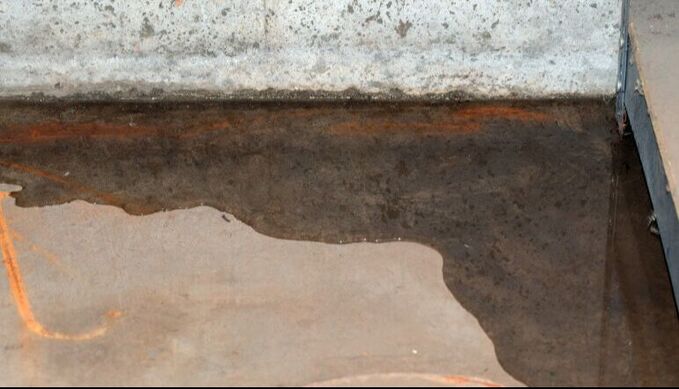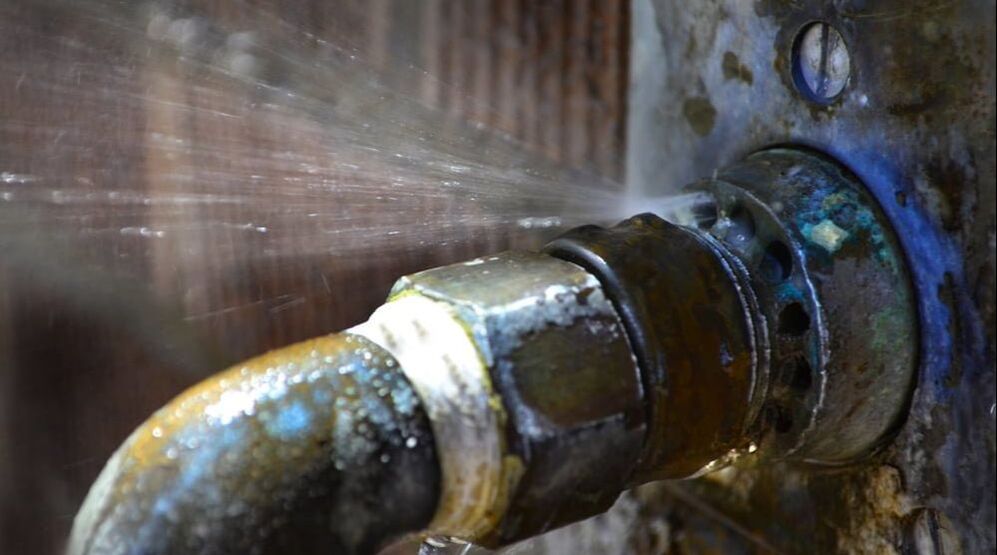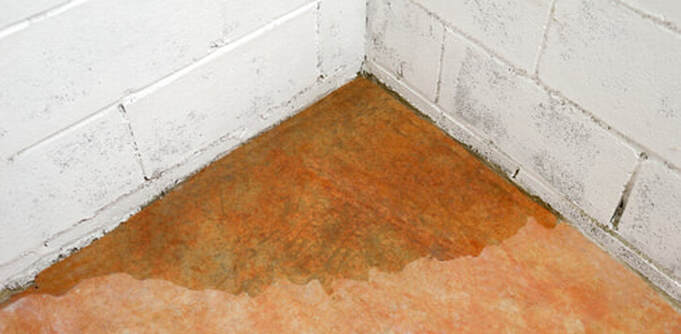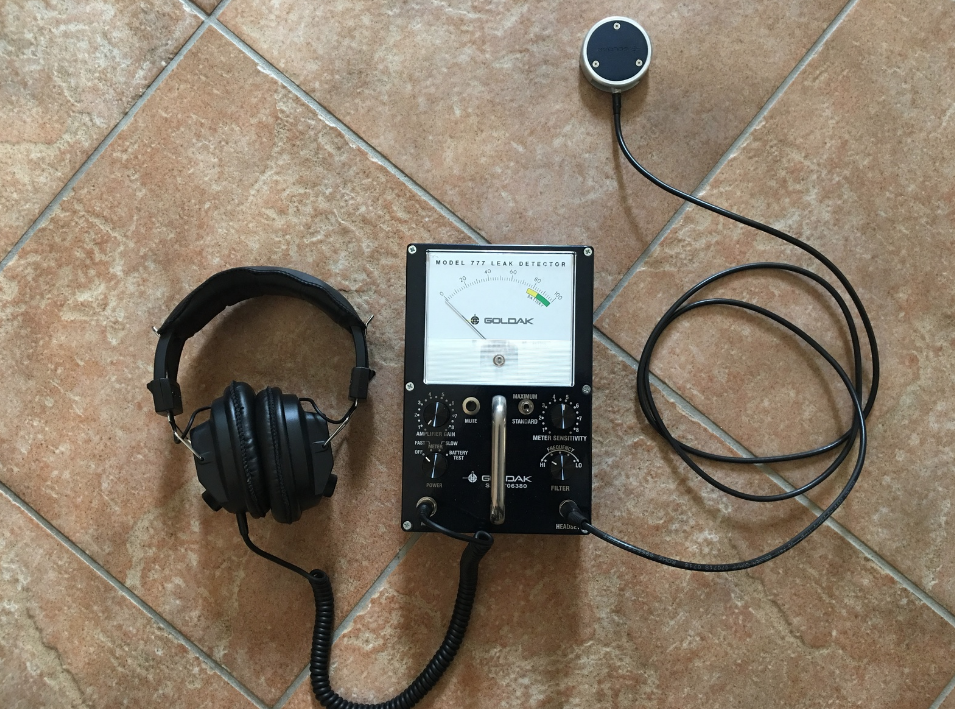|
TO LISTEN, CLICK PLAY
|
How To: Find a Leak in a Pool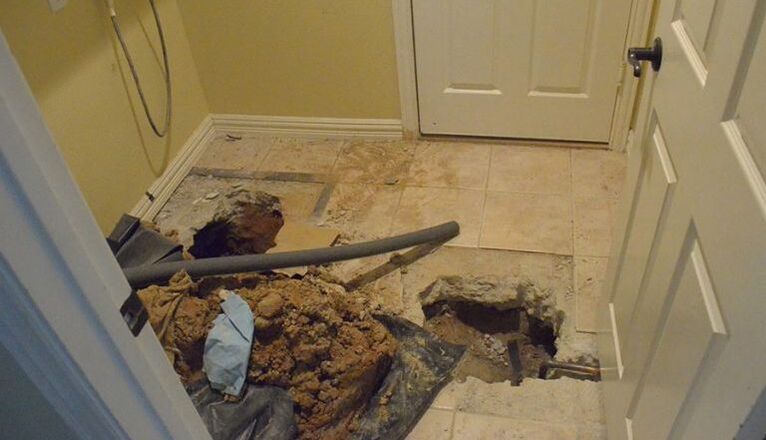
In simple terms, slab leaks refer to water leaks on concrete slabs. If not noticed early enough or left to remain for long, they could easily cause some serious damage to your structures. So, how a slab leak happens is when the water lines that bring or take water to various rooms in your house develop pinhole leaks. You may not be aware of this but water pipes that deliver water into your home are run under a concrete foundation or slab. And yes, when a leak occurs in such an area, finding the leak and repairing it can be tough, but the thing is, running the water pipes under the slabs is the most cost-effective method of transporting water throughout the house. The water lines are then linked at manifolds where they are then routed to individual fixtures like toilets, faucets, showers, and washing machines. Given that water is delivered to your property through the municipal water line, you need to have a pressure regulator in your home so as to ensure or regulate the pressure that’s going into your house. This ensures that the pressure remains at a safe PSI, especially considering that pressure is the major cause of slab leaks. Causes
Let’s put it this way, the actual cause or reason why a hole would develop in your water pipes comes down to corrosion. But the way copper pipes become corroded might be as a result of a number of reasons. Most times, pinpointing the specific event that leads to a leak can be a difficult task, however, there are three most common factors that ultimately results in a slab leak including high water pressure, thermal expansion, and time. Let’s take a look at them individually : High water pressure – high water pressure coming into your home means that there will be more force against your fixtures or seals in the plumbing system. What this does is that over time, the force creates excess pressure which in turn leads to leaks, which occurs not only in the water lines in the slab but also in the showers, toilets, angel stops, and faucets. A pressure of around 50-75 pounds per square inch (PSI) is the recommended water pressure going into any home. Given that as a homeowner, you can’t be able to regulate water pressure from the city, which by the way can come as high as 160 PSI and varies from city to city, you need to have a pressure regulator installed in your property in order to safeguard your home against leaking water fixtures, burst pipes as well as slab leaks. Thermal expansion – so, when you heat water, it expands. And just like high water pressure, when the expansion happens, it creates a lot of pressure. As you know, pressure can’t be held in one place for long, and it has to escape somewhere. This is how a leak comes to be, either in the slab, fixtures, or water heater.
Basically, thermal expansion explains how the water pipes expand and constrict when hot water runs through them in the slab foundation. When the pipes expand, they cause friction between them and the foundation, which over time leads to spots, which in turn, results in pinhole leaks and ultimately a slab leak. Time – the time in which the copper pipes have been in use is also a big determining factor when we talk of slab leaks. The fact that pipes are in use every day, and that they are heated and continually handles pressurized water each and every day, year after year, they are set to eventually wear down. This applies even to copper, which is arguably the best pipe to use in your plumbing system. Dangers
Every time water lines burst, they lead to major flooding, which in turn causes major property destruction. The advantage of this kind of burst is that they are quite easy to spot, which means that you will be able to work on them immediately. When it comes to slab leaks, they are actually the most dangerous since they are slow and can be tough to detect. If it goes unnoticed for long, the slow leak will eventually lead to the growth of mold in your property, which if left unremedied for too long, can lead to a number of health issues. Having said that, you need to keep an eye on any possible signs of a slab leak in your house. Detection
If there is a slow pinhole leak under the slab, you will find that the leaking water is only a small trickle. Water does follow a path with the least resistance, where they seep through the slab foundation in a zigzag-like pattern. The water often comes to the surface several feet or inches away from the actual leak spot. The problem becomes more if the leak is underneath tiled surfaces or hardwood floors, as there won’t be any clear signs. In this case, a warm spot might be the only sign, and that’s only when the line leaking runs hot water. This is when a leak detection specialist comes in handy. Slab leak detection is skilled and experienced enough to locate any leak, anywhere. Unfortunately, this isn’t a job you will be able to do yourself. See, depending on the type of leak – whether hot or cold – and the pipe’s location could alter the entire scope of work, making it tough for anyone inexperienced or unskilled to carry out the repairing task. At times, the leak occurs super close to the connecting pipes, making the repair process almost impossible or much more expensive. Slab leak detection is done with the help of an electronic leak detection equipment. The machine utilizes a sonar-like method to locate the exact location where the pressurized pipe has a leak. This machine isn’t easy to use and sometimes, it is only a slab leak specialist can be able to utilize it effectively. So, get in touch with us and we will handle the problem for you. |
|
Helpful Resources For Your Swimming Pool
- 5 Tips Of Pool Leak Detection
- 10 Signs You Have A Water Main Leak
- How To Remove Pool Algae
- How To Fix Cloudy Pool Water
- Understanding Pool Cartridge Filters
- Understanding Pool Chlorine
- Common Pool Leaks
- Pros & Cons Of Hiring Leak Detector
- Pool Leaking Vs Water Evaporating
- Low Water Pressure
- Signs Of A Gas Leak
- Detect An Irrigation Leak
- Pool Skimmer Leaks
- Pool Leak Detection Using Ultrasound
- 7 Tips To Keep The Pool Swim-Ready & Safe All Summer Long

